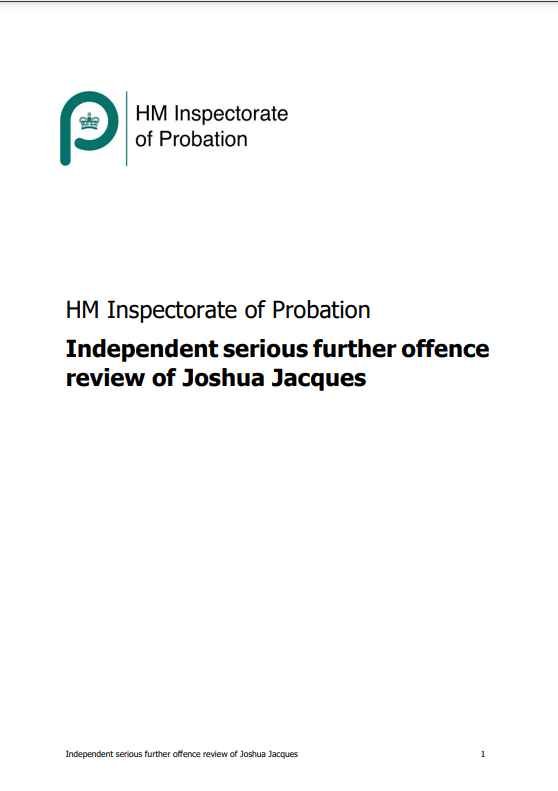By HM Inspectorate of Probation (UK)
On 25 April 2022, police forced entry to a property in Bermondsey, London, where the bodies of Denton Burke (aged 68), Dolett Hill (aged 64), Tanysha (Raquel) Ofori-Akuffo (aged 45), and Samantha Drummonds (aged 27) were found. All four victims had suffered stab wounds and lacerations. Joshua Jacques was charged with these murders.
In June 2022, the Lord Chancellor and Secretary of State asked the Chief Inspector of Probation to undertake an independent review into how the Probation Service managed Joshua Jacques, as he was under probation supervision when he was arrested for these offenses. This review was completed in November 2022 and can now be published following the completion of criminal proceedings.
Key findings:
Despite concerns about repeated non-compliance with his licence conditions, enforcement practice was inconsistent and opportunities to recall Jacques to custody were missed.
Joshua Jacques was incorrectly allocated to a newly qualified probation officer who had only finished their training three months before being assigned the case.
Joshua Jacques was appropriately assessed as posing a high risk of serious harm to the public following his release from custody. However, his risk in other categories, including to staff or potential partners was underestimated. No risk assessment was completed for Jacques following his release which resulted in no risk management plan or sentence plan in the community being completed.
In February 2022, Jacques disclosed to probation court staff that he was experiencing a decline in his mental health; however, no action was taken.
Inspectors found during this review that probation staff felt ill-equipped to understand and respond to mental health concerns, with limited training and support being available to them.
The case records show that Jacques was routinely using cannabis whilst on probation, and his licence contained a condition to engage in a drug abuse intervention on release from prison. No such intervention was organised by the Probation Service and our inspection found no evidence of a referral to a drugs agency.
As a result of this review, eight recommendations were made to HMPPS.
Manchester, UK: HM Inspectorate of Probation, 2024. 38p.





